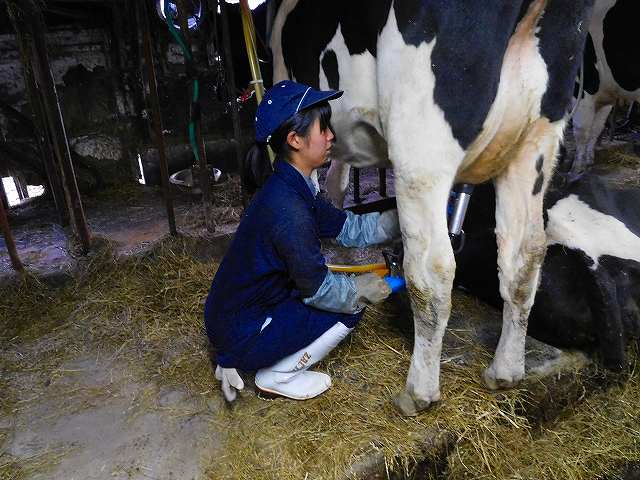Dairy industry likely to get more aid after EPA deal with EU

Japan Times | 6 July 2017
Dairy industry likely to get more aid after EPA deal with EU
(JIJI) Japan is expected to boost subsidies and other assistance to dairy farmers after reaching a broad accord on its economic partnership agreement with the European Union, informed sources say.
The two sides struck the deal at bilateral ministerial talks in Brussels on Wednesday by resolving thorny issues including Japanese tariffs on cheese imports.
The result was announced after a bilateral summit on Thursday.
To ease the impact from the surge in cheese imports, the government and the Liberal Democratic Party-led ruling bloc will consider hiking subsidies to dairy farmers to help stabilize their incomes, the sources said.
“We definitely need measures for the domestic industry,” Toru Nakaya, next president of Japan’s Central Union of Agricultural Cooperatives, or JA-Zenchu, told a news conference Wednesday.
To work out those shielding steps, Japan will remake its task force at the Cabinet Secretariat that was formed to discuss steps to reduce the impact of the stalled Trans-Pacific Partnership agreement for free trade.
European cheese commands a 23 percent stake in the Japanese market, far higher than the 15 percent held by domestic producers. An increase in imports from Europe will likely push down domestic milk prices.
At present, about 17,000 families run dairy farms in Japan. The number has fallen by around 4 percent annually mainly due to the farmers’ aging and a lack of successors.
“An influx of low-priced European cheese would lead to an increase in dairy farmers who consider ending their businesses,” said a JA-Zenchu executive.
Livestock farmers are bracing for a fall in pork prices that would follow the tariff cut planned for European pork.
To reduce the negative impact of the TPP, Japan established a system to cover up to 90 percent of the losses livestock farmers incur.The system was slated to take effect after the TPP is enforced. Now, the government will consider starting the system earlier.
The government is also expected to discuss steps to improve the competitiveness of the domestic forestry industry as imports of northern European timber are seen growing.
Meanwhile, the auto industry welcomed an agreement by the EU to eliminate its 10 percent tariff on cars from Japan as part of the free trade pact. The EU has agreed to abolish the auto tariff over seven years after the EPA takes effect, a timetable longer than expected by the industry.
But the deal allows Japan’s automakers to finally overcome their disadvantages in competing against South Korean rivals in Europe.
The EU axed its tariff on South Korean cars by 2016 under an FTA that took effect in 2011, a move that helped lift the share of South Korean cars to 6.3 percent of the EU market in 2016 from 4.1 percent in 2009.
The Japanese industry had hoped to eliminate the tariff disadvantages as soon as possible. In 2016, overall exports to the EU from Japan totaled some ¥8 trillion, or 11 percent of the country’s total. Auto exports made up ¥1.25 trillion, topping the list.





